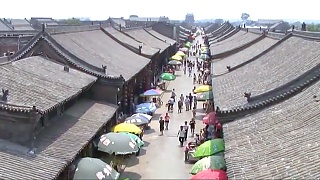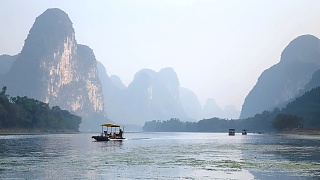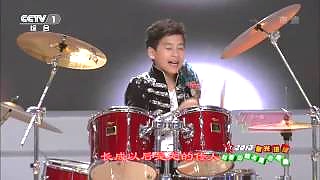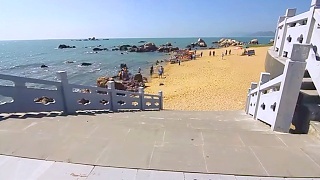
|
With Beijing Old Liu ...
Visitor Guide to YanQi Lake, BeiJing
Overview
YanQi Lake, located in the HuaiRou District of BeiJing, is a stunning natural area known for its picturesque landscapes and clear waters. It is a popular destination for both leisure and business, offering a tranquil escape from the bustling city and a venue for high-profile international events, including the Asia-Pacific Economic Cooperation (APEC) summit in 2014.
Getting There
By Air: The nearest airport is Beijing Capital International Airport (PEK), approximately 50 kilometers from YanQi Lake. From the airport, you can take a taxi or a shuttle bus to reach the lake.
By Train: You can take a high-speed train to HuaiRou North Railway Station and then a taxi or local bus to YanQi Lake.
By Bus: Several buses run from downtown BeiJing to HuaiRou District. You can then take a local bus or taxi to YanQi Lake.
Getting Around
Walking: YanQi Lake area is best explored on foot, allowing you to fully appreciate its natural beauty and serene environment.
Biking: Renting a bike is a popular option for getting around and exploring the scenic routes around the lake.
Local Transport: Taxis and shuttle services are available for traveling to and from different parts of the lake area and nearby attractions.
Main Attractions
YanQi Island
YanQi Island is the centerpiece of YanQi Lake, hosting luxury resorts, conference centers, and beautiful gardens. It is an ideal place for relaxation, high-end dining, and international conferences.
YanQi Tower
The YanQi Tower offers panoramic views of the lake and surrounding mountains. Visitors can take an elevator to the top for breathtaking scenery and photography opportunities.
Boat Tours
Boat tours on YanQi Lake provide a peaceful and scenic way to explore the area. Various types of boats, from traditional Chinese boats to modern yachts, are available for hire.
Wild Duck Lake
Nearby Wild Duck Lake is a birdwatcher's paradise, home to a variety of bird species, especially migratory birds. It's a great spot for nature enthusiasts and photographers.
Hongluo Temple
Located a short distance from YanQi Lake, Hongluo Temple is one of the largest and oldest temples in northern China. It offers a serene environment and rich cultural heritage.
Local Cuisine
While visiting YanQi Lake, you can enjoy a variety of local and international cuisines. Here are some recommendations:
Peking Duck: A world-famous dish, Peking Duck is a must-try when in BeiJing. Many restaurants near YanQi Lake serve this delicacy.
YanQi Lake Fish: Freshly caught fish from the lake, prepared in various styles, is a local specialty.
HuaiRou Chestnut: HuaiRou is known for its delicious chestnuts, which can be enjoyed roasted or used in local dishes.
Shopping
Local Handicrafts: Explore shops around YanQi Lake for traditional Chinese handicrafts, including silk products, pottery, and paintings.
Specialty Foods: Purchase local specialties such as HuaiRou chestnuts, honey, and other agricultural products.
Souvenirs: Various souvenir shops offer items commemorating the APEC summit and other significant events held at YanQi Lake.
Accommodation
Luxury Resorts: YanQi Lake is home to several luxury resorts, such as the YanQi Lake Kempinski Hotel, which offers top-notch amenities and stunning views.
Mid-Range Hotels: There are also several mid-range hotels and boutique accommodations around the lake area, providing comfort and convenience at reasonable prices.
Guesthouses: For a more local experience, consider staying in one of the guesthouses or inns in the nearby villages.
Historical Background of YanQi Lake
YanQi Lake is a man-made reservoir created in the 1980s to improve water supply and irrigation for the HuaiRou District. The project aimed to enhance the local agricultural productivity and provide a recreational area for residents and visitors.
Over the years, YanQi Lake has developed into a major tourist destination and a hub for international events. The lake and its surrounding areas have been carefully maintained and upgraded to offer a blend of natural beauty, cultural heritage, and modern amenities.
The area around YanQi Lake has also been a site of historical significance. The nearby Hongluo Temple, dating back over 1,000 years, reflects the region's rich spiritual and cultural history. The combination of ancient traditions and modern development makes YanQi Lake a unique and attractive destination.
Tips for Visitors
Best Time to Visit: The best times to visit YanQi Lake are spring (April to June) and autumn (September to November) when the weather is mild and the scenery is at its most beautiful.
Clothing: Wear comfortable walking shoes and dress in layers to accommodate changing temperatures. An umbrella or raincoat is useful during the rainy season.
Respect Local Customs: Be respectful of local customs and traditions. Dress modestly and be mindful of local etiquette, especially when visiting historical and cultural sites.
Language: While Mandarin is widely spoken, learning a few basic phrases or using a translation app can be very helpful.
Plan Your Visit: YanQi Lake is best explored at a leisurely pace. Take your time to enjoy the scenic views, visit local attractions, and savor the local cuisine.
Conclusion
YanQi Lake, with its stunning natural beauty, historical significance, and modern amenities, offers a unique and memorable travel experience. Whether you're exploring the tranquil lake, visiting nearby cultural sites, or enjoying local cuisine, YanQi Lake provides a serene escape and a glimpse into the rich heritage of BeiJing. Plan your visit carefully to make the most of your trip to this picturesque destination in the HuaiRou District.
|
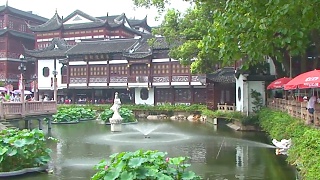






 ‘Better Lives’ – documentary films on poverty reduction
‘Better Lives’ – documentary films on poverty reduction